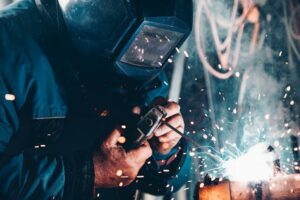INTRODUCTION
On 21 January 2025, a fire broke out in a hotel in Kartalkaya Ski Resort in Bolu, which turned into a tragedy that shook our country deeply. In this tragic incident, many people were injured and unfortunately some guests lost their lives. Following the fire, issues such as the adequacy of the hotel’s fire safety measures, the responsibility of the management and the effectiveness of the inspection processes were widely publicized. Following the fire, both judicial and administrative investigations were initiated by the competent authorities and legal proceedings were initiated against the hotel management and related persons.
For this reason, in this article, we will examine the legal remedies regarding the compensation that deceased or injured employees and their families can apply and claim.
A. Occupational Accident and Occupational Accident Compensation
First of all, an occupational accident is a situation where the worker is physically or mentally harmed or loses his/her life as a result of an event occurring within the scope of the employment relationship.
In this context, occupational accident compensation refers to the compensation lawsuit filed against the employer in order to compensate the damages caused by the accident to the worker or his/her relatives. Compensations that can be claimed due to work accidents are divided into two as pecuniary and non-pecuniary. If the worker is injured, the compensation lawsuit can be filed by the worker himself/herself, while if the worker loses his/her life, the right to sue passes to his/her heirs and relatives.
In such cases, material compensation is calculated by taking into account factors such as physical damages, loss of earnings, loss of earning capacity, and loss of earning capacity, while non-pecuniary compensation can also be claimed for psychological effects and moral damages.
Fatal occupational accident compensation is a type of compensation paid to compensate the material and moral damages of the family of the employee who lost his/her life as a result of an occupational accident. In this context, the relatives of the deceased can claim compensation from both the Social Security Institution (SSI) and the employer. While the SSI provides death pension and funeral allowance to the beneficiaries of the deceased employee, the family may also claim compensation for the material and moral damages suffered within the scope of the employer’s legal responsibility.
In addition, the relatives of the deceased worker may also be entitled to severance pay if the conditions are met. If the employer is found to be at fault, the employer’s legal liability will arise due to the damages caused by the accident and the aggrieved family may also claim non-pecuniary damages. These compensations are paid to the dependents of the deceased worker, such as spouse, children and parents. In order for the family to effectively claim their rights, the work accident report must be issued, the death certificate must be obtained and the relevant applications must be made within the legal period.
The employee who has suffered bodily injury as a result of an injury at work may claim the following compensation items:
- Treatment expenses,
- Loss of earnings,
- Losses arising from the reduction or complete loss of earning capacity,
- Damages arising from the undermining of the economic future.
These compensations can be claimed by the employee who has suffered an occupational accident within the scope of the financial compensation lawsuit to be filed against the employer. In the aforementioned lawsuit, the employee may request compensation for the above-mentioned damages. At this point, it should be noted that the loss of rights that the employee will suffer in the future should also be compensated. This is because a worker who suffers loss of earning capacity as a result of an occupational accident will experience the negative effects of this situation in the long term, and although the salaries tied after the occupational accident may provide temporary satisfaction, they may not be sufficient in the future. For this reason, the damages arising from the decrease or loss in the working capacity of the employee are considered as one of the most critical elements in compensation calculations.
One of the most important evidences in material compensation cases are the reports and documents issued by the Social Security Institution (SSI) inspectors. SSI inspectors examine the workplace where the work accident occurred, take the statements of the parties, evaluate the worker’s insurance information, working conditions and salary information and make the necessary investigations. These reports are of great importance in terms of determining the fault rates and determining the loss of labour force of the worker. For this reason, the SSI inspector reports play a decisive role in the course of the proceedings regarding the work accident.
In accidents involving injury, the worker and his/her relatives, and in fatal accidents, the relatives of the worker may claim non-pecuniary damages.
B. Conditions for the Decision of Moral Compensation Due to Occupational Accident
Certain conditions must be met in order for the injured worker or his/her relatives to claim non-pecuniary damages in the event of a work accident. The conditions for the award of moral compensation are as follows:
- The realization of the act,
- The occurrence of damage as a result of the act,
- There must be a causal link between the damage and the act,
- The act is unlawful,
- Physical damage to the labourer.
If the above-mentioned conditions are met, the judge may award non-pecuniary damages according to the characteristics of the incident and the situation of the parties.
C. Conditions for Spouses and Children to Claim Moral Compensation
If the worker has lost his/her life as a result of an occupational accident, his/her heirs already have the right to claim both pecuniary and non-pecuniary compensation under the Turkish Code of Obligations. However, if the worker has suffered only physical damage, some additional conditions must be met in order for his relatives to claim moral compensation.
In this case, the serious psychological effects of the occupational accident on the spouse and children, the change in their life course or their health problems may constitute grounds for a claim for moral compensation. This is because moral compensation aims to compensate for the moral losses suffered by the victim or his/her relatives.
The Court of Cassation has made the following assessment in one of its judgements:
“In the event that the mental health of the plaintiff, his spouse and children, who are directly exposed to physical damage due to the incident, is severely impaired and they have to undergo shock and treatment, they may request non-pecuniary damages based on Article 47 of the Code of Obligations, since the causal link will be deemed to have been realized.”
Therefore, if the effects of the occupational accident are not only limited to the worker, but also negatively affect the lives of his/her family, the spouse and children may also claim non-pecuniary damages.
D. Occupational Accident and Criminal Liability
Not only compensation lawsuits, but also criminal lawsuits may arise due to work accidents. This is because in work accidents, the employer or persons responsible for occupational safety may be criminally liable as well as legally liable.
In this context, if the worker is injured as a result of an occupational accident, the offence of negligent injury may occur in accordance with Article 89 of the Turkish Penal Code (TPC). The injured worker may file a criminal complaint against the employer or other responsible parties by applying to the Chief Public Prosecutor’s Office.
If the work accident resulted in the death of the worker, then the offence of negligent homicide under Article 85 of the TPC will come to the fore. A criminal complaint can be filed to the Chief Public Prosecutor’s Office for this offence.
Criminal lawsuits are conducted independently from compensation lawsuits, and criminal lawsuits related to occupational accidents are heard by the criminal courts. On the other hand, compensation cases to be filed due to an occupational accident are heard by the labor courts.
E. Payments that the Worker who suffered an Occupational Accident can claim from the Social Security Institution
There are various payments that the Social Security Institution (“SSI”) may provide to the worker or his/her relatives who have suffered an occupational accident. These payments are as follows:
- Temporary incapacity benefit,
- Permanent incapacity benefit,
- Death benefit (paid to the surviving relatives of the deceased worker),
- Marriage allowance (paid to daughters who have lost their parents in an accident at work),
- Funeral allowance (paid to the relatives of the deceased worker).
The most comprehensive of these payments are temporary and permanent incapacity benefits.
In compensation cases to be filed due to a work accident, while the fault rates and financial losses of the parties are evaluated, the worker’s ability to work may be restricted due to disability. In this process, certain payments are made to the worker by the SSI.
a) Temporary Incapacity Allowance
Temporary incapacity benefit is a support paid by the SSI if the worker is injured as a result of a work accident and becomes unable to work and this situation is documented by a medical report.
In order to receive the allowance:
- The worker must be examined by physicians or health institutions contracted with the SSI and his/her incapacity for work must be determined.
- The worker will complete the application through the “e-allowance” system of the SSI.
- Whether the allowance has been transferred to the bank account can be monitored through the “Seeing Incapacity Allowance” service in the e-Devlet system
Payment process:
- Payment starts on the third day after the onset of incapacity for work.
- If the worker leaves the job, the incapacity benefit is paid for another 10 days, after which it is stopped.
- If the worker’s treatment requires hospitalization, half of his/her daily earnings are paid, and if he/she is treated on an outpatient basis, two-thirds of his/her daily earnings are paid.
b) Permanent Incapacity Allowance
In the event that the worker suffers a permanent physical loss as a result of a work accident and his/her working capacity is permanently reduced, a permanent incapacity benefit is paid instead of temporary incapacity for work.
The worker receives a permanent income at the rate of 70% of his/her monthly earnings.
- If the worker is in need of permanent care of another person, the full monthly earnings are paid.
These payments aim to partially compensate for the long-term effects of the work accident on the worker.
F. CONCLUSION
An occupational accident is the injury or loss of life of an employee as a result of an event occurring within the scope of the employment relationship. In this context, since the fire disaster in Bolu Kartalkaya can be qualified as an occupational accident, the employee or his/her relatives may file a lawsuit for material and moral compensation against the employer (in the concrete case, the hotel operators where the fire occurred). In fatal accidents, the heirs may claim death pension and funeral allowance from the employer hotel operators and SSI.
The employer hotel operators may also be criminally liable due to the work accident; in case of injury to the worker, an investigation may be carried out against the hotel operators within the scope of Article 89 (negligent injury) of the Turkish Penal Code, and in case of death, a criminal case may be opened against the hotel operators within the scope of Article 85 (negligent homicide) of the Turkish Penal Code.
On the other hand, the supports provided by the SSI include temporary and permanent incapacity allowance, death allowance, marriage, and funeral allowances. While temporary incapacity allowance is provided for a certain period of time in case of disability of the worker, in case of permanent loss of labor force, a monthly income is provided with permanent incapacity allowance. In all these processes, fault rates, SSI inspector reports and court evaluations play a decisive role.
However, we would like to emphasize that in order to avoid any loss of rights for the relevant transactions, it is important to pay attention to the legal periods and to follow the legal processes closely.











